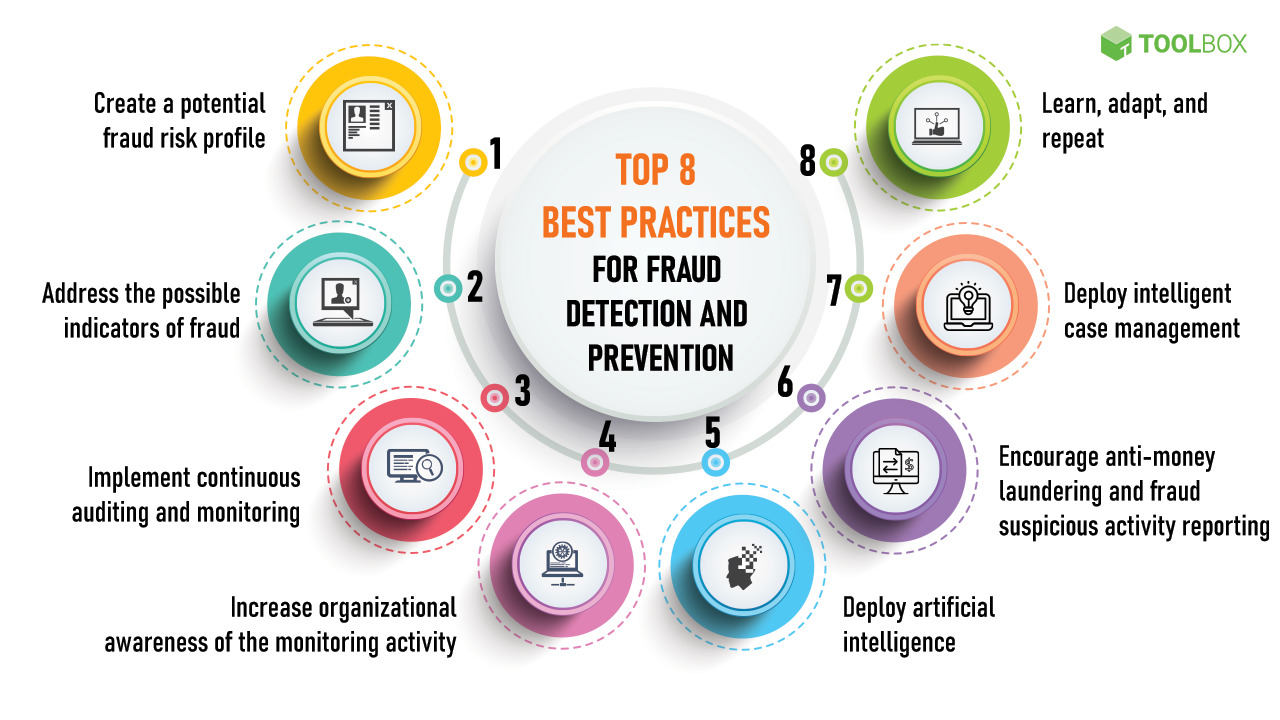Fraud is a growing menace that costs businesses billions of dollars annually. Whether it’s identity theft, financial fraud, or cyberattacks, organizations must remain vigilant to avoid significant financial and reputational damage. Traditional fraud detection methods, which rely on predefined rules and human oversight, are no longer sufficient in the face of evolving threats.
Enter AI agents for fraud detection—an advanced technological innovation that leverages machine learning (ML), natural language processing (NLP), and automation to detect and prevent fraudulent activities in real time. These AI-powered solutions offer businesses an efficient way to mitigate risks, improve security, and safeguard customer trust.
What Are AI Agents for Fraud Detection?
AI agents for fraud detection are intelligent systems designed to analyze large amounts of data, detect anomalies, and mitigate fraudulent activities in real time. Unlike traditional rule-based systems, AI agents continuously learn from past data, enabling them to identify evolving fraud tactics and minimize false positives.
- Machine Learning (ML): AI models analyze historical data to detect suspicious patterns and predict fraudulent transactions.
- Natural Language Processing (NLP): Helps detect fraudulent communications, phishing attempts, and text-based fraud in emails and messages.
- Deep Learning: Enhances fraud detection by analyzing complex datasets and recognizing intricate fraud schemes.
Key Features of AI Agents for Fraud Detection
Real-time Monitoring: AI agents continuously monitor transactions and online activities to identify fraudulent behavior within seconds.
Pattern Recognition: AI models analyze vast amounts of transactional data to uncover hidden fraud patterns. For example, an unusual transaction from a foreign country or a sudden increase in high-value purchases could indicate fraudulent activity.
Automated Alerts and Decision-Making: When suspicious activity is detected, AI agents can trigger automated alerts, request additional verification, or even block transactions if necessary.
Continuous Learning: Machine learning algorithms enable AI agents to adapt to emerging fraud tactics by learning from new data. Unlike traditional methods, which require manual updates, AI systems improve autonomously over time.
Integration Capabilities: AI fraud detection systems can seamlessly integrate with existing enterprise software, such as Customer Relationship Management (CRM) and Enterprise Resource Planning (ERP) platforms, enhancing fraud prevention capabilities across different business functions.
How AI in Fraud Detection Transforms Industries
Banking and Financial Services
Banks face significant fraud risks, including credit card fraud, phishing scams, and money laundering. AI-powered fraud detection systems analyze transactional data in real-time to identify suspicious activity, such as:
- Unusual spending behaviors (e.g., high-value transactions in different locations within a short time).
- Multiple failed login attempts, indicating a potential account takeover.
- AML compliance by detecting suspicious money transfers and preventing illegal financial activities.
E-commerce and Retail
- Identifying high-risk transactions, such as bulk purchases of expensive items.
- Detecting fraudulent login attempts based on device fingerprinting and geolocation tracking.
- Preventing chargeback fraud, where fraudsters claim refunds for purchases they never made.
Insurance Sector
Fraudulent insurance claims cost companies billions annually. AI-driven fraud detection systems analyze claim histories, customer records, and external databases to flag potential fraud cases, such as:
- Inflated repair costs in auto insurance claims.
- Duplicate claims filed under different names.
- False medical claims using fabricated medical reports.
Cybersecurity
AI plays a pivotal role in detecting and preventing cyber fraud, including phishing, ransomware, and identity theft. AI-powered systems:
- Monitor network activity to identify suspicious login attempts.
- Detect abnormal data transfers or unauthorized access to sensitive files.
- Prevent business email compromise (BEC) fraud by analyzing email content for malicious intent.
Benefits of AI Agents for Fraud Detection
The adoption of AI agents in fraud detection provides numerous advantages, making it a game-changer for businesses looking to mitigate risks efficiently. Here’s how AI-driven fraud detection benefits organizations:
Increased Accuracy
Traditional fraud detection methods often produce a high number of false positives and negatives, leading to inefficiencies. AI agents, powered by machine learning algorithms, significantly improve accuracy by:
- Recognizing complex fraud patterns that humans may overlook.
- Reducing false positives, ensuring that legitimate transactions are not unnecessarily flagged.
- Enhancing detection speed and reliability through real-time analysis.
Cost Efficiency
Fraud detection can be resource-intensive, requiring teams of analysts to manually review suspicious activities. AI-driven fraud detection:
- Automates decision-making, reducing the need for human intervention.
- Lowers operational costs by preventing financial losses from fraud.
- Minimizes regulatory penalties by ensuring compliance with financial laws and regulations.
Scalability
As businesses grow, so do their fraud risks. AI-powered fraud detection systems offer scalability, enabling organizations to:
- Process vast amounts of transactional data without compromising performance.
- Detect fraud across multiple channels (e.g., online transactions, mobile banking, and in-store purchases).
- Adapt to new business models and payment methods, including cryptocurrency transactions.
Proactive Fraud Prevention
Instead of merely reacting to fraudulent activities, AI fraud detection systems provide proactive protection by:
- Predicting potential fraud based on historical data analysis.
- Implementing preventive measures, such as two-factor authentication or identity verification.
- Blocking fraudulent transactions before they are completed, minimizing financial damage.
Challenges in Implementing AI in Fraud Detection
- Data Privacy Concerns: AI systems require large datasets, raising issues around data security and regulatory compliance.
- High Initial Costs: Implementing AI-driven fraud detection involves significant investment in technology, infrastructure, and skilled personnel.
- Complex Integration: AI solutions must seamlessly integrate with existing legacy systems, which can be technically challenging.
- Evolving Fraud Techniques: Fraudsters continuously develop new tactics, requiring AI models to be regularly updated and retrained.
Best Practices for Adopting AI in Fraud Detection
- Invest in Quality Data: Ensure clean, diverse, and up-to-date datasets for accurate AI fraud detection.
- Choose Scalable Solutions: Opt for AI systems that can grow with your business and adapt to evolving fraud tactics.
- Prioritize Security and Compliance: Implement strong encryption, follow data protection regulations, and conduct regular audits.
- Monitor and Update Regularly: Continuously refine AI models to detect new fraud techniques and improve accuracy.
Future of AI Agents for Fraud Detection
The future of AI agents in fraud detection is poised for significant advancements, with emerging technologies like federated learning and generative AI enhancing fraud prevention capabilities. These innovations will enable organizations to share threat intelligence securely, improving detection accuracy while maintaining data privacy.
Furthermore, the integration of AI with blockchain technology will strengthen fraud prevention by ensuring tamper-proof transaction records and decentralized security mechanisms. As fraudsters develop more sophisticated tactics, AI systems will continuously evolve, adapting to new fraud trends in real-time. Companies that embrace these future innovations will stay ahead in the fight against fraud, ensuring safer transactions and enhanced customer trust.
Final Thoughts
AI agents for fraud detection are transforming the way businesses combat financial crimes, offering real-time monitoring, predictive analytics, and automation to prevent fraudulent activities. By leveraging machine learning and data-driven insights, organizations can significantly reduce financial losses, enhance security, and maintain customer trust.
However, successful implementation requires overcoming challenges such as data privacy concerns, integration complexities, and the need for continuous updates. The future of fraud prevention lies in AI, and businesses must embrace these technologies to stay ahead of emerging threats.














